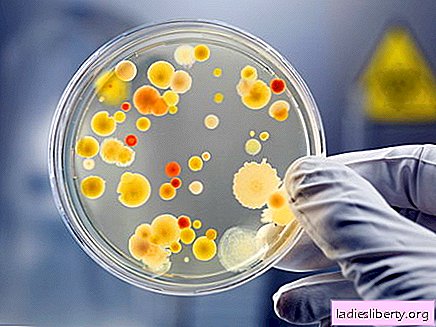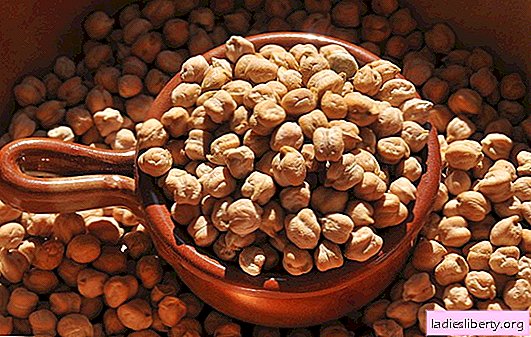
Constipation - This is a problem that is characterized by slow or difficult bowel movement.
With such a functional violation of the body, many women face during pregnancy. According to statistics, two women out of three suffer from this delicate problem while being pregnant.
At the same time, constipation brings not only discomfort - in adverse cases may harm the health of the baby and the expectant mother, or even cause an abortion. Also, apart from physical discomfort, constipation causes constant excitement and fear for the health of your child.
What is dangerous constipation during pregnancy?
The discomfort that is inevitably present with constipation can cause feelings for yourself and the future baby. It is not a secret to anyone that negative emotions during pregnancy are a risk for both the mother and the fetus.
Due to the fact that substances formed as a result of food digestion, are retained in the intestine, intoxication of the body. The decay products, while in the digestive tract, can be absorbed into the bloodstream, and this can adversely affect the development of the fetus.
Many pregnant women, in the event of constipation, are wondering whether it is possible to make attempts at defecation. While carrying a child, it is not advisable to push. If the attempts are not strong and not frequent, then problems will not arise. But with chronic constipation, constant attempts can lead to hemorrhoids or cause miscarriage.
With the stagnation of the intestinal contents, complications such as proctosigmoiditis can occur - the process of inflammation of the sigmoid and rectum, as well as colitis.
Possible causes of constipation during pregnancy
Causes of constipation during pregnancy are various physiological changes occurring in the body of the expectant mother. As a rule, when diagnosing constipation, it is difficult to single out one reason; most likely they act in conjunction with different degrees of influence.
The main causes of constipation during pregnancy:
• Enlarged uterus. In the second half of pregnancy there is a significant increase in the uterus, and it begins to squeeze the intestines. As a result, the outflow of blood from the pelvic vessels slows down, venous congestion occurs. This can cause the development of hemorrhoids (a disease in which the rectal veins dilate). And hemorrhoids, in turn, provoke constipation.
• Progesterone. Changes in hormonal levels, namely increased production of the hormone - progesterone, also cause constipation. Progesterone acts on smooth muscles of internal organs, reducing their tone. During pregnancy, the action of this hormone on the uterus is necessary, since the increased tone of this organ can provoke a threat of miscarriage. The intestinal wall, like the uterus, consists of smooth muscle tissue, therefore, the effect of progesterone applies to it. Thus, the activity of the intestine is reduced, which provokes constipation.
• Low mobility. Lack of physical activity can cause constipation. During pregnancy, physical activity is contraindicated, as a result, the motility of the digestive tract organs is reduced.
• Preparations with calcium and iron. During the first trimester of pregnancy, doctors often prescribe calcium and iron preparations necessary for proper formation of the fetus. These micronutrients, which are of great benefit, can also have an undesirable side effect in the form of constipation.
• Stress. During pregnancy, women often experience emotional instability, they are more susceptible to various fears and stresses. All these experiences can negatively affect the frequency of bowel movements.
Diagnosis of constipation during pregnancy
Constipation - lack of defecation more than three days. Constipation during pregnancy is usually accompanied by a feeling of incomplete emptying of the intestines, abdominal pain may occur.
More rarely, but still, the following symptoms occur: burning sensation in the rectal area, nausea, bloating belly, presence bitterness in the mouth.
Also symptoms of constipation are a small amount of feces, and the stool mass is dry and hard. When hemorrhoids in the feces may be a small amount of blood.
In pregnant women, all of these symptoms can occur immediately or some of them in various combinations.
Treatment of constipation during pregnancy
It is important to remember that only a doctor can diagnose constipation. Even if the symptoms coincide completely, only a doctor can establish the final diagnosis and prescribe treatment. If constipation is accompanied by pain in the abdomen, then first you should visit a gynecologist to rule out possible causes of pain, as they may arise not only because of constipation. Then consultation of the gastroenterologist is necessary, he will help to choose the correct tactics of struggle against constipations.
Usually, in order to normalize the work of the intestines, first of all doctors recommend to follow a certain diet. Such a diet is characterized by a high fiber content. Fiber, entering the body, is not digested, but increases the amount of fecal masses, thereby the intestine will be released faster.
When constipation is needed in the daily diet should include such products:
• Vegetables, especially raw - carrots, pumpkins, cucumbers, beets, tomatoes, apples and zucchini. Beets can be used boiled or boiled. To bake the beets you need to wash it well and wrap in several layers of foil. Then bake in the oven for about an hour and a half, then clean and grate. Thus prepared beets can be added to salads or used with vegetable oil. Baked apples are also useful - during heat treatment in apples, the content of pectin increases, which contributes to the rapid emptying of the intestines.
• Baking wholemeal flour. Such bakery products are characterized by a high content of fiber, so it is useful to use them for constipation.
• Dairy products, especially yogurt and kefir. These foods should be included in your daily diet, but they should be exceptionally fresh, not older than one day from the date of manufacture.
• Vegetable fats. To eliminate constipation, you can drink a tablespoon of olive or sunflower oil on an empty stomach. In order for the chair to be regular it is necessary to consume at least 10 grams of vegetable oil per day. You can use olive or sunflower oil in salads. Besides the fact that vegetable oils have a positive effect on the digestive process, it also increases the elasticity of the tissue, which is very important during childbirth.
• Dried fruits. Use of dried apricots, dates, prunes and figs well helps in eliminating constipation. Dried fruits can be used as a compote, and in dry form. Do not eat dried pears, as they, on the contrary, contribute to the appearance of constipation.
• Oatmeal. This porridge is also useful for constipation due to its high fiber content. But its benefit can be increased even more by adding various dried fruits or grated apples to the finished oatmeal. It is undesirable to add sugar to such porridge, it is better to replace it with honey.
• Water. A pregnant woman should drink enough water, especially if there is such a problem as constipation. During the day you need to drink more than 1.5 liters of fluid. On an empty stomach, half an hour before the first meal, you need to drink a glass of warm water, adding a little honey or a slice of lemon. Also, do not give up the use of medicinal mineral water. Bicarbonate contained in mineral water has an activating effect on the processes occurring in the gastrointestinal tract, therefore, the use of such water helps in combating constipation.
These products not only help in the fight against constipation, their use helps to normalize the bowels and eliminates the risk of constipation. Therefore, even if the expectant mother is not faced with the problem of constipation, it will not be superfluous to include such products in your diet.
The diet of a pregnant woman suffering from constipation should not include foods that have a lingering effect on the chair.
Therefore it is necessary exclude such products from your diet:
• Fat broth
• Fine baked goods from flour of a fine grinding, cookies
• Bananas, pears, persimmon
• Eggplant
• Sweets, chocolate
• Rice
• Caffeinated beverages - coffee and strong tea
• Spicy and salty foods
• Pasta
• Potatoes
• Semi-finished and canned
If the pregnancy passes without complications, then you can not give up moderate physical exertion.
There is a special gymnastics for pregnant womenwhich can be practiced at home or on courses. Even an ordinary walk can help you fight constipation. Walking is best done for at least one hour a day.
Effective remedies for the elimination of constipation are medicines. They should be taken only after the appointment of a doctor, and strictly adhering to the instructions. Some drugs are prescribed only as a last resort, when others do not cope with the problem. These drugs are drugs that contribute to an increase in fecal masses - glycerin candles, vaseline oil.
Permitted drugs for pregnant women are drugs that are not able to be absorbed through the walls of the gastrointestinal tract and are not digested - they increase the volume of intestinal contents by slowing down the absorption of water by its walls. Also for pregnant women are allowed drugs that soften the feces - of various kinds laxatives.
Preventing constipation during pregnancy
If you are pregnant, you may not even know what a problem with constipation is if you take preventive measures. The main prevention of constipation during pregnancy is proper nutrition. In order to avoid problems such as constipation, you need to choose the right foods for your diet. It is important not only to choose the right diet, but also to adhere to a certain diet - it should be regular. It is desirable that the daily ration included the intake of liquid food, such as soup or borscht.
Daily physical exertion is also necessary, but only with the permission of the pregnant woman’s attending physician.
In the absence of contraindications, the expectant mother must drink 1.5 to 2 liters of fluid per day. This is not only the physiological norm for a woman carrying a child, but also prevention from constipation.
At the first symptoms of constipation it is best not to delay the visit to the doctor, as this can be fraught with serious consequences.











